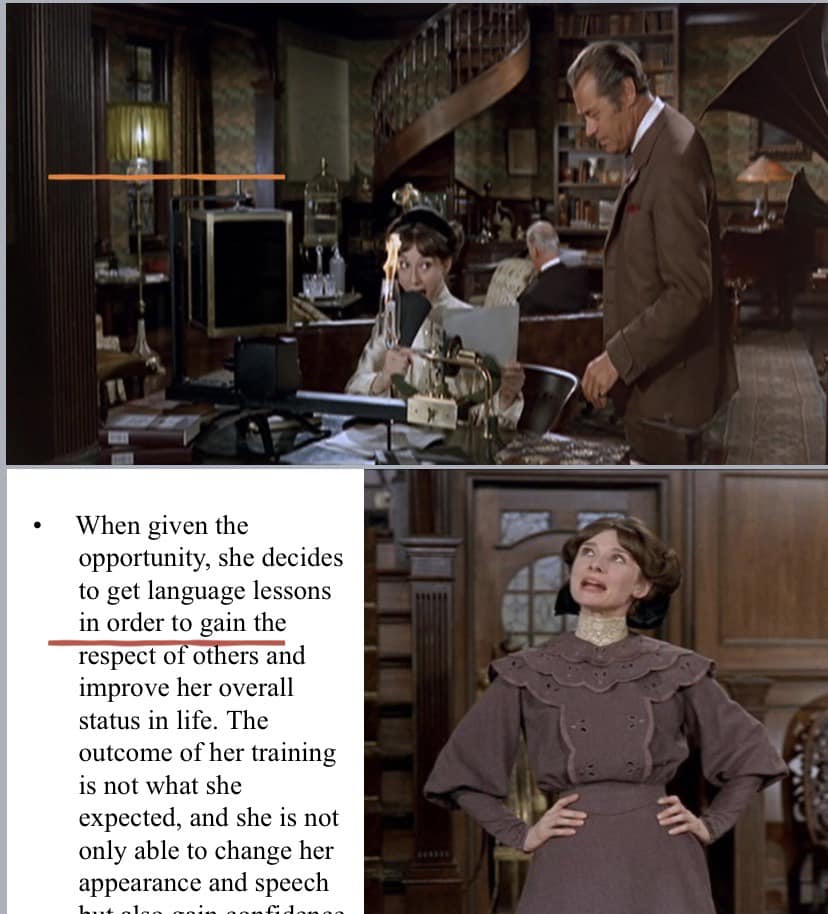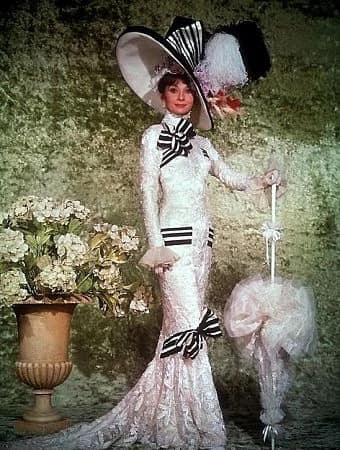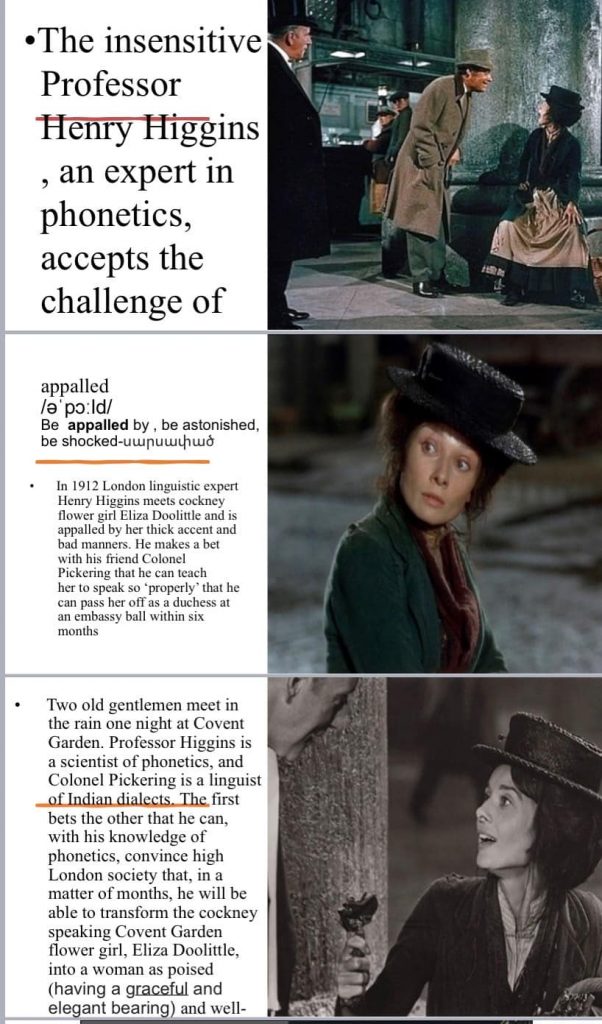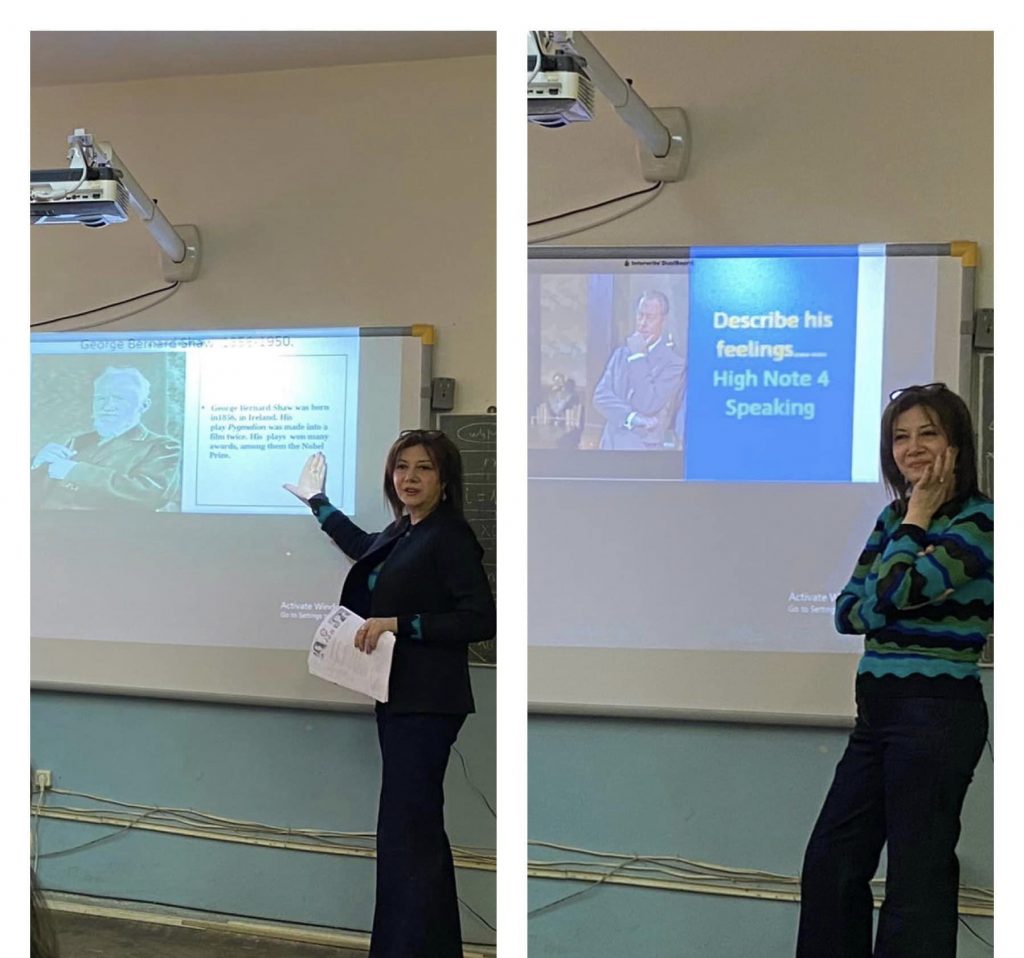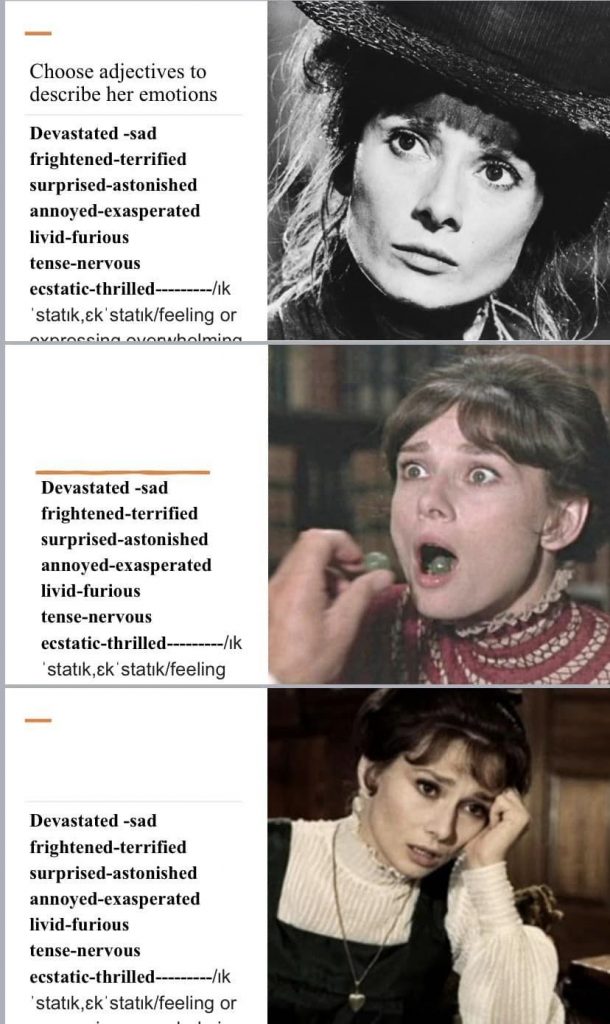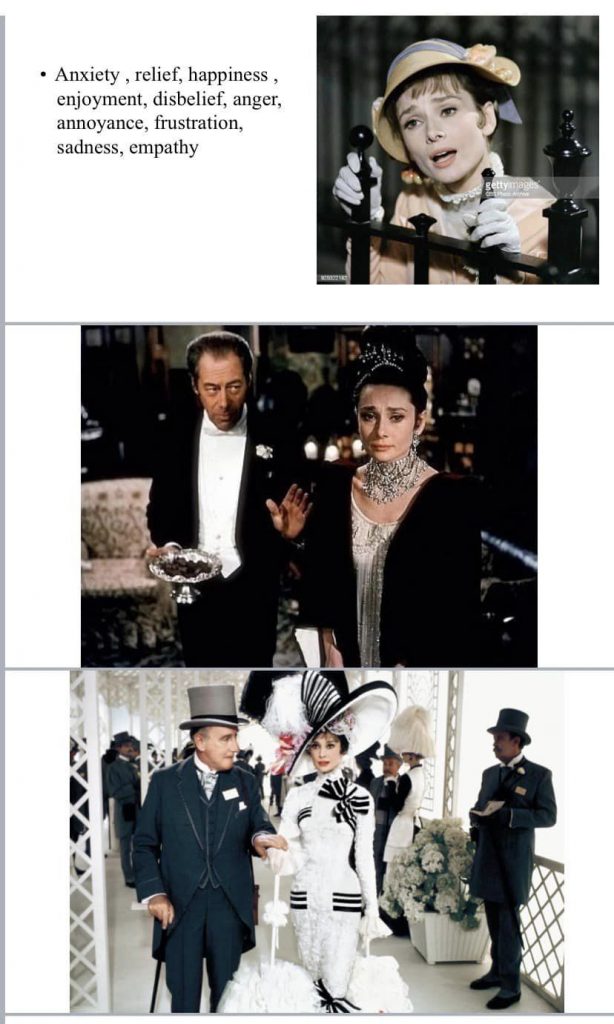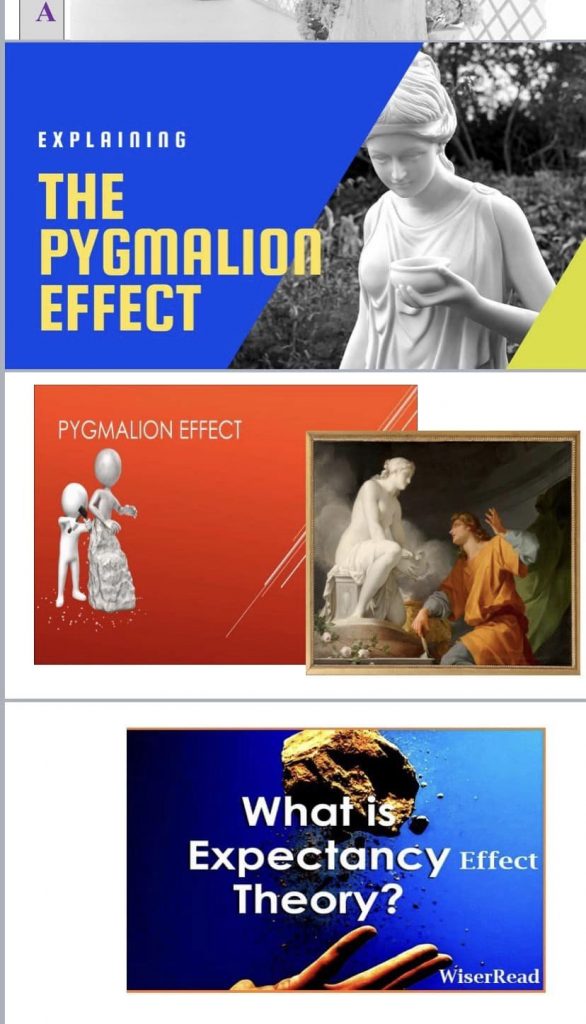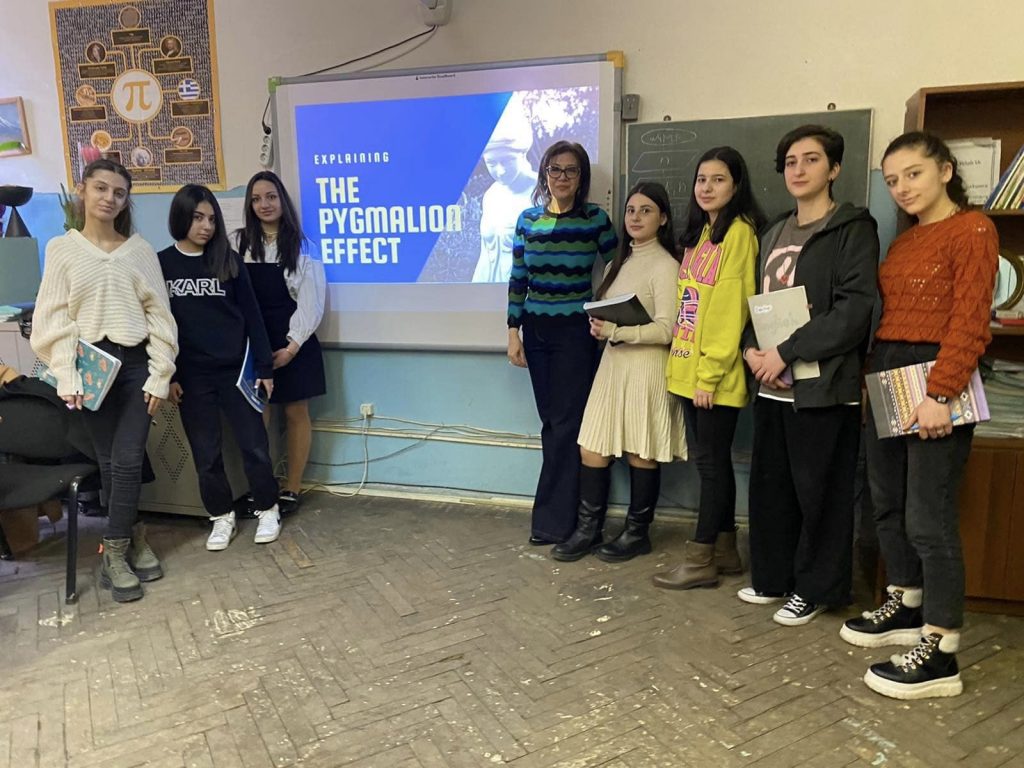
«The difference between a lady and a flower girl is not how she behaves, but how she is treated.» -George Bernard Shaw (Pygmalion)
In this lesson students continue their investigation into the many facets of identity as they read the play Pygmalion by George Bernard Shaw. They also continue to build skills as close readers as they examine a work of literature set in Victorian England.
Eliza Doolittle starting off as a lowly flower girl, Eliza wishes to move up in the world and work in a flower shop. She goes to Henry Higgins in the hopes that he can help her become more refined and go on to fulfil her dream. As the play goes on Eliza learns she is not a duchess or plaything to Henry Higgins but an independent woman capable of taking her own life in her hands. Henry Higgins A highly intelligent man but impatient and quick to anger. He is an expert in phonetics and can place anyone to the street they live on just by hearing their accent. He agrees to take Eliza Doolittle on as a pupil but only to win a bet against his friend, Colonel Pickering, that he can turn someone as low on the social ladder as Eliza into a duchess.
Henry Higgins is a professor of phonetics who plays Pygmalion to Eliza Doolittle’s Galatea. Similarly, to Pygmalion, Henry Higgins is an artist. He possesses a fervent passion for the field of phonetics and has devoted his whole life to its advancement. He takes in students, gives them rigorous phonetic lessons, and turns their voices into beauty. The students of grade 11/1 are trying to respond to the question: Should the teacher be a Pygmalion in class?
Teacher: K. Aleksanyan
9.03.2023
